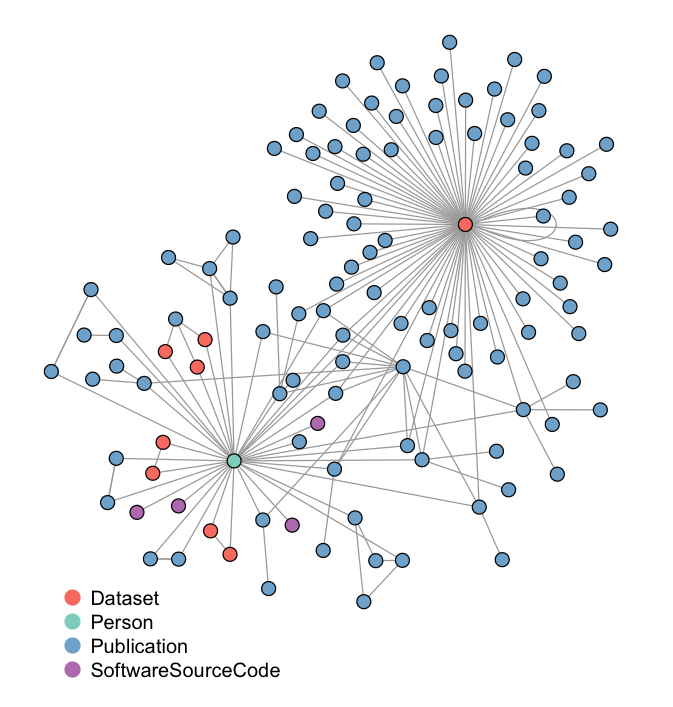Connecting Persistent Identifiers
PIDs support research infrastructure by building and maintaining critical links between research objects, people, infrastructures, awards and funding, and research organizations. By using PIDs, user communities can identify linked research components, understand how objects are connected, and use those connections to track and understand their research impact. PIDs support the FAIR principles, emphasizing the importance of making research discoverable, accessible, usable, intelligible, interoperable, and reusable, which encourages broader discovery and use of research.
DOIs and ORCID iDs are used to connect researchers to outputs, including published articles, supporting datasets, and software. Image source: https://github.com/datacite/notebooks/tree/master/pid-graph/r-person-publications

Related Identifiers
One way that PIDs support research communities is through connecting research objects using related identifiers. Related identifiers are associated within the metadata of the object to which a PID is assigned, allowing a persistent connection between the PID and other research objects (journal articles, technical reports, datasets, instruments, software, etc.). For example, a journal article may reference a dataset. Within the metadata associated with the journal article DOI, there could be a related identifier to the dataset DOI.
By using related identifiers:
- Entities and organizations support reproducibility by building networks that show how research objects relate to one another.
- OSTI and PID organizations provide the critical infrastructure for building and maintaining relationships between referenced objects.
- Linked relationships between research objects are supported, like “references” and “is cited by” relationship types.
OSTI provides several DOI services that support the use of related identifiers. These allow user communities to:
- leverage PIDs to build networks showing research collaboration and interconnectedness;
- exchange information between interoperable frameworks;
- understand how research objects are integrated into other portfolios;
- and track individual and/or organization contribution.
Read More about OSTI's DOI services here.
PIDs make it easier to discover, cite, reuse, track, and provide interoperability between research objects, funding, people, and organizations.
